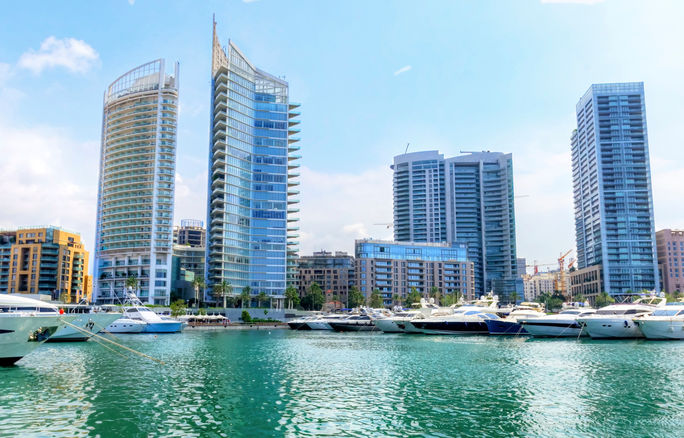✡️War in the Middle East: What Places Are Safe to Visit and What Travelers Need to Know
#War #Middle #East #Places #Safe #Visit #Travelers
[ad_1]
War in the Middle East: What Places Are Safe to Visit and What Travelers Need to Know
▶️Watch the Video
[ad_2]

The war between Israel and Hamas in the Middle East has dominated headlines for the better part of the last month.
The fighting has prompted a slew of updated travel advisories for countries in the impacted region in addition to a worldwide caution from the U.S. State Department urging Americans to stay alert when traveling abroad.
With airlines scrapping flights and cruise lines altering itineraries in some cases, travelers will want to be aware of the current threat level ahead of a potential trip to the Middle East. Here’s what they need to know.
Israel, the West Bank and Gaza – Reconsider Travel
Travelers are advised to avoid travel to Gaza and reconsider plans to visit Israel and the West Bank following Hamas’ recent surprise attack on Israel and the ongoing war that has resulted.
The State Department warns of terrorism, civil unrest and armed conflict in the region. Currently, El Al Airlines is the only airline continuing to fly between the U.S. and Israel but even its service may be disrupted with limited notice.
Lebanon – Do Not Travel

Zaitunay Bay in Beirut, Lebanon. (Photo Credit: f8grapher / iStock / Getty Images Plus)
Americans should also avoid traveling to Lebanon this fall amid the authorized departure of family members of U.S. government personnel and some non-emergency personnel on a case-by-case basis.
“Do Not travel to Lebanon due to the unpredictable security situation related to rocket, missile, and artillery exchanges between Israel and Hizballah or other armed militant factions,” the State Department advises. “Reconsider travel to Lebanon due to terrorism, civil unrest, armed conflict, crime, kidnapping, and Embassy Beirut’s limited capacity to provide support to U.S. citizens.”
Jordan – Exercise Increased Caution
Travelers are advised to exercise increased caution in Jordan due to the threat of terrorism. Visitors to the Middle Eastern country should avoid traveling within 3.5 kilometers (just over two miles) of the Jordanian border with Syria and east of the town of Ruwayshid in the direction of the border with Iraq due to terrorism and armed conflict.
Designated Syrian refugee camps in Jordan should also be avoided due to entry restrictions, in addition to the Zarqa, Rusayfah and the Baqa’a neighborhood of Ayn Basha due to terrorism and crime.
Americans traveling to Jordan are asked to reconsider plans to visit Ma’an City and some areas of Ma’an Governorate due to terrorism and crime.
United Airlines has also issued a travel alert for its flights to Amman, Jordan through the end of November but hasn’t suspended service.

View of Alexandria harbor, Egypt. (Photo Credit: javarman3/iStock/Getty Images Plus)
Egypt – Reconsider Travel
The State Department’s July 2023 update for Egypt encourages Americans to reconsider plans to visit the North African country due to terrorism. Those who do visit should exercise increased caution due to the Embassy’s limited ability to assist dual-national U.S.-Egyptian citizens who are arrested or detained.
Specific areas within Egypt to avoid include the Sinai Peninsula (with the exception of travel to Sharm El-Sheikh by air), the Western Desert and Egyptian border areas due to terrorism and military zones.
Syria – Do Not Travel
Syria remains an off-limits destination for Americans this fall, with officials advising travelers to stay out of the country due to terrorism, civil unrest, kidnapping, armed conflict, and the risk of unjust detention.
“The U.S. Embassy in Damascus suspended its operations in February 2012,” the State Department says. “The U.S. government is unable to provide any emergency services to U.S. citizens in Syria.”
Iraq – Do Not Travel
Americans should continue to avoid travel to Iraq following the ordered departure of non-emergency U.S. government personnel and eligible family members due to increased security threats this October.
The State Department warns of terrorism, kidnapping, armed conflict, civil unrest, and Mission Iraq’s limited capacity to provide support to U.S. citizens. “U.S. citizens in Iraq face high risks to their safety and security, including the potential for violence and kidnapping,” officials warn.
“Terrorist and insurgent groups regularly attack Iraqi security forces and civilians. Anti-U.S. militias threaten U.S. citizens and international companies throughout Iraq. Attacks using improvised explosive devices, indirect fire, and unmanned aerial vehicles occur in many areas of the country, including Baghdad and other major cities.”
For the latest travel news, updates and deals, subscribe to the daily TravelPulse newsletter.
Topics From This Article to Explore
[ad_1]
War in the Middle East: What Places Are Safe to Visit and What Travelers Need to Know
[ad_1]
thank you for watch : War in the Middle East: What Places Are Safe to Visit and What Travelers Need to Know
[ad_2]